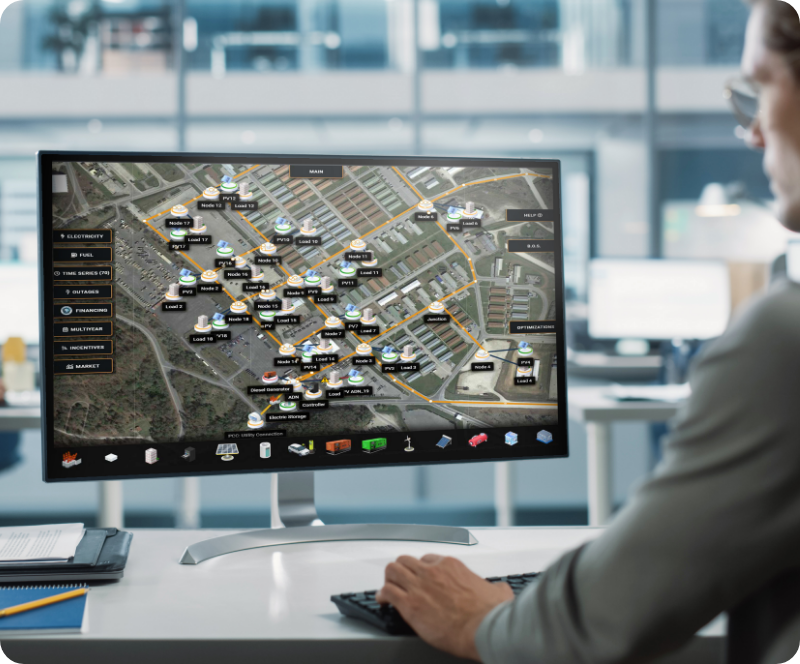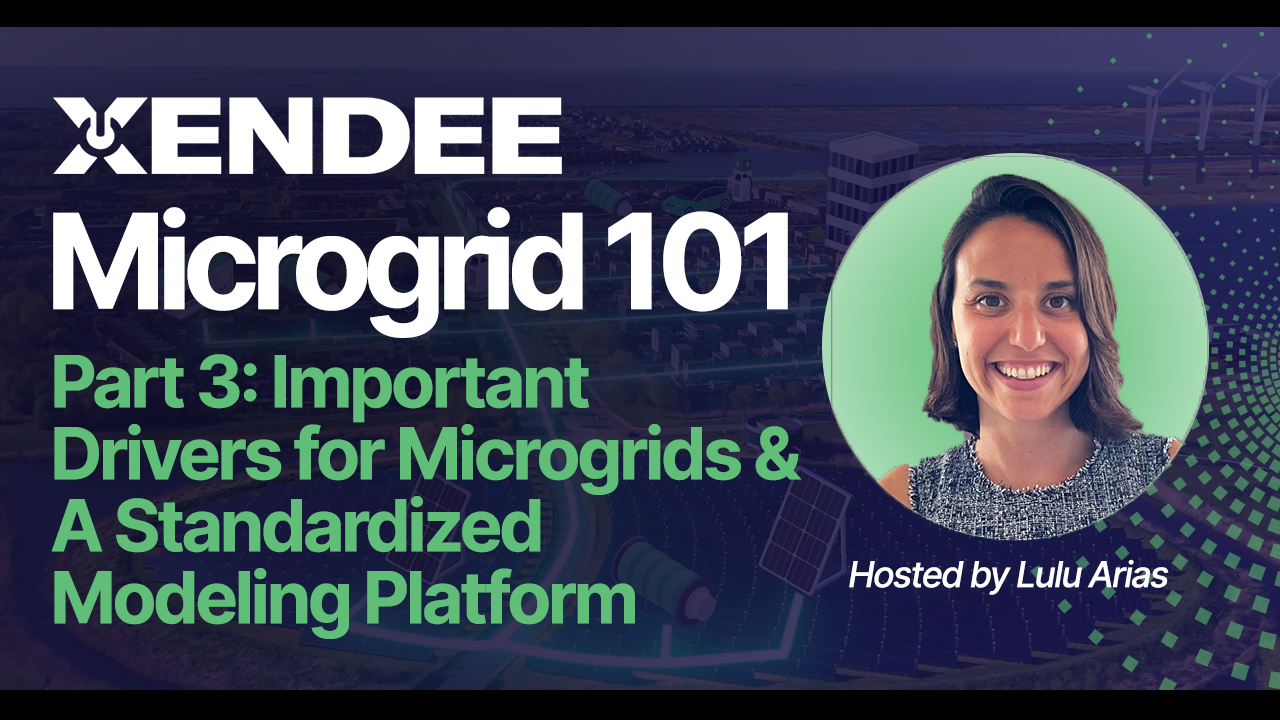Welcome to Xendee University for Microgrid Modeling
| Expand your career into one of the fastest-growing sectors in energy and take the first steps toward mastering microgrid design and optimization. |
Your Hub for Microgrid Design & Optimization Education
As the energy landscape rapidly evolves, professionals across the industry are being called to design, model, and deploy smarter, more resilient energy systems. Xendee University is your destination for mastering the tools and techniques needed to lead in this new era. Whether you're transitioning from solar PV, EV infrastructure, traditional utility work, or just beginning your microgrid journey, our learning center is built to support your growth.
Explore a library of on-demand courses, technical videos, and practical tutorials covering a full spectrum of microgrid engineering principles. Learn how to optimize distributed energy resources, manage complex tariff structures, incorporate battery storage and generators, and model the integration of EV charging into microgrid systems. Each resource is designed to deepen your knowledge while building fluency with the Xendee platform.

Microgrid 101 - Start Your Journey to Microgrid Mastery
A Four-Part Course for Learning the Basics of Microgrid Modeling

Microgrid 101
Part 1: Microgrid Overview & Engineering Challenges
Gain an understanding of microgrids, their core concepts, major engineering challenges, and the growing markets driving their adoption. Explore real-world examples of microgrid deployments, focusing on practical applications and lessons learned. Understand the process of gathering necessary data, setting project conditions, and selecting organizational goals for successful design.

Microgrid 101
Part 2: Microgrid Examples and Real-World Use Cases
Explore real-world examples of microgrid deployments, focusing on practical applications and lessons learned. Understand the process of gathering necessary data, setting project conditions, and selecting organizational goals for successful design.

Microgrid 101
Part 3: Important Drivers for Microgrids & A Standardized Modeling Platform
Dive into critical factors influencing microgrid design, such as load requirements, tariffs, combined heat and power (CHP), and financial incentives. Learn about the integrated platform used for microgrid modeling, and watch a live demonstration of its features and capabilities.
Microgrid 201 - Advanced Microgrid Modeling Courses
Featuring Key Topics In Microgrid Project Feasibility & Analysis

Microgrid 201
Multi-Node, One-Line Diagram, and Power Flow Analysis
Tailored for complex, multi-building sites, this session explores how to optimize technology placement and power flow to improve system resilience, reduce transmission losses, and enhance voltage stability. Model large distributed sites, optimize cable and transformer sizing for cost and performance, and create one-line diagrams and power flow analysis following industry best practices.

Microgrid 201
Financing Methods and Strategies
This session focuses on financing methods and strategies for microgrid projects, equipping participants to compare financing approaches directly in Xendee and model options such as upfront purchases, loans, and amortized costs. Learn to apply financial metrics including NPV, payback period, cash flow, and ROI to strengthen stakeholder presentations, while also simulating Energy-as-a-Service and Charging-as-a-Service models from both customer and developer perspectives.
Microgrid Modeling Series
Learn How to Model New Technologies and Handle Use-Case Specific Challenges

Microgrid Modeling Series
Modeling Data Centers with Cost-Effective Redundancy Approaches
In this video, we'll cover how redundancy modeling in Xendee is different from traditional redundancy assumptions, and how modeling in Xendee results in a more cost-effective, flexible, and resilient energy system that meets strict uptime requirements without unnecessary oversizing.

Microgrid Modeling Series
Boost Cooling Efficiency in Data Centers with CHP + Absorption Chillers
Data centers face intense cooling demands, often met with electricity-intensive systems that drive up operational costs. In this first installment, we explore how combining a CHP generator with an absorption chiller can reduce electricity consumption by recycling waste heat, improving both financial and operational performance.

Microgrid Modeling Series
Reducing CO2 Emissions for Data Center Modeling
In this video, we'll cover how to build an integrated solution with renewable energy technologies to further reduce carbon emissions. See the actual techniques used to reduce both operational costs and carbon emissions at a data center in California by integrating solar PV, CHP generators, and absorption chillers using Xendee’s optimization engine.

Microgrid Modeling Series
Multi-Node Modeling Basics - What is Multi-Node?
Learn how to model complex distributed energy systems using Xendee’s Multi-Node functionality, which enables detailed analysis of power flow, losses, and equipment placement across multiple loads and connection points. This session explains when to use single-node versus multi-node modeling and how Xendee’s integrated tools work together to create accurate, resilient microgrid designs.
Xendee has been an integral partner in our microgrid innovation research and in helping UC San Diego to capture new project funding and research opportunities.
University of California, San Diego
See How Academic and Research Leaders Are Partnering With Xendee
Trusted & Used By:
















Register for an Upcoming Microgrid 201 Class
Microgrid 201
Thermal Technologies
October 28th, 8AM-10AM PT
Unlock the full potential of thermal energy systems in your microgrid designs. This advanced session will guide you through modeling and optimizing thermal technologies using Xendee’s integrated platform.
Main Topics:
-
Model Combined Heat and Power (CHP), boilers, heat pumps, chillers, and thermal storage in Xendee during a live, hands-on demo.
-
Evaluate how thermal solutions contribute to decarbonization, energy efficiency, and resilience
-
Integrate and co-optimize thermal and electrical DERs for applications like commercial buildings, industrial sites, and campuses
